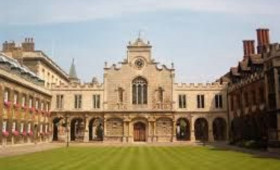Understanding A-levels
03.10.174254
A-LEVEL PROGRAMME
 The General Certificate of Education (GCE) Advanced Level or A-Level is a British qualification exam, required for admission to universities in the UK.
The General Certificate of Education (GCE) Advanced Level or A-Level is a British qualification exam, required for admission to universities in the UK.
In Britain, secondary education is compulsory until the age of 16. Once students reach 14 years of age, they commence a two-year mandatory programme, which prepares them to attestation in seven to nine subjects. At the end of the programme, students are tested and receive a General Certificate of Secondary Education, or GCSE.
Having obtained this certificate, students can either leave school and start working or continue their education. Those who chose to continue their education can follow either of two paths: enrol into a college programme to receive skills necessary for skilled labour, or enrol in a two-year university preparation programme, known as the A-level programme.
Students, who would like to enroll into an A-level programme need to pass at least five of their GCSE exams with grades A, B and C. Foreign students who want to enrol into British A-level programme need to first graduate from secondary school with high scores and pass the IELTS test with the score of 4.5 - 5.5 points.
At A-Levels students study three to five subjects for two years, passing yearly attestations at the end of each study year. It is customary to take four subjects in your first year of A-Levels, known as AS (although there is no limit in regards to how many subjects you can take, as long as it is 3 or more). In their second year, known as A2, the majority of students tend to drop one subject and focus on the in-depth study in three subject areas.
The A-level certificate is accepted by all British universities, as well as by top universities around the world. It is important to note, that students get provisionally accepted by the university in the beginning of their second year of A-level studies, based on the grades they have received at the end of their first year and predictions given for the grades they will be awarded in the second year.
CHOOSING A-LEVEL SUBJECTS
The number of subjects studied at the A-Levels depends on academic achievements and abilities of each student. Universities would usually require results from three subjects at A2 level plus an additional one at the AS level. The majority of subjects should be closely related to the applicant’s future domain of studies.
The A-Level programme is often criticised for its very narrow specialisation, driven by the fact that students are required to study closely-related subjects in order to be accepted by universities into specific undergraduate programmes. For example, to develop into a well-rounded person, it might be better for a student to study mathematics, a foreign language and art. But if the said student wants to become a doctor, from university’s perspective he needs to study chemistry, biology and physics at the A2 level. Though at the AS stage students are encouraged to take an additional subject from an entirely different area of expertise.
A-level grading system
At A-levels, students are accessed at the end of the year examinations and are awarded grades. To pass the subject a student needs to receive A*, A, B, C or D. The A* grade was introduced in 2008. It is awarded to students in their second year of studies, in the event of receiving grade ‘A’ on a test in both the first and the second year of studies, with performance in the second year of studies at or above 90%.
A-Level grades often get converted into points, especially when applying via the UCAS. For example, UCAS evaluation of A* is equal to 140 points, grade A translates to 120 points, B to 100, C to 80, D to 60 and Е to 40. In this way, universities may require applicants to have achieved 280 points, instead of B-B-C. This gives more flexibility to applicants since those 280 points can be achieved in combination A-B-D, whereas many universities would not accept an application with a D.
University admission team, however, will also take into account exceptional achievements in other areas, for example in music or sports.
International options
Outside of Britain, A-Level programme is offered by schools in 125 countries, teaching 60 different subjects. Their results are evaluated by two examination committees: Cambridge International Examinations (CIE) and Edexcel.
Although CIE A-Level certification presumes that students have been provided with the same level of education, many universities believe that this qualification significantly differs from the British one.


















